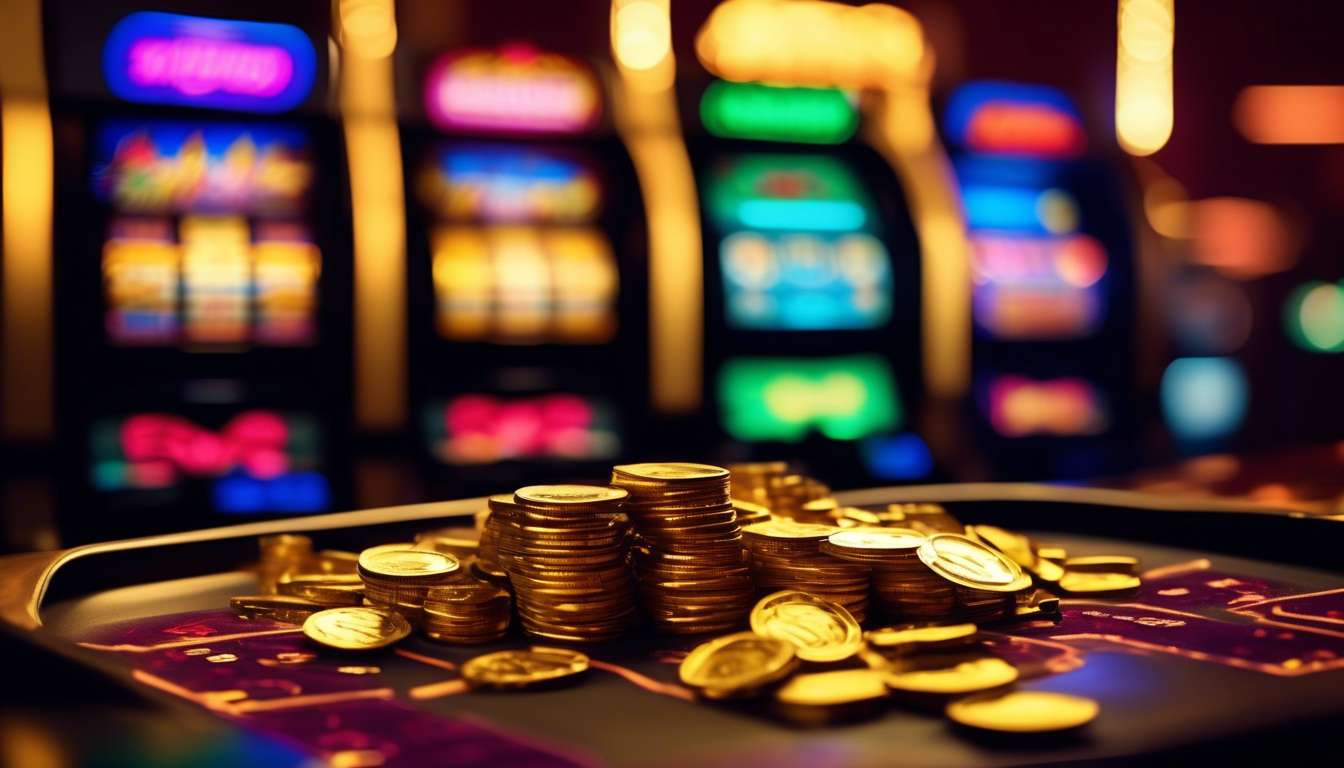In the ever-enticing world of gambling, we find ourselves drawn to the allure of risk and reward, often without fully understanding the psychological forces at play. As we place our bets, spin the wheel, or lay down our cards, it’s crucial to explore the mental processes that influence our decisions in these high-stakes environments.
Together, we embark on a journey into the psychology of gambling, a realm where our minds navigate a complex web of emotions, biases, and cognitive distortions. Our shared experiences reveal how the thrill of chance can captivate us, leading to decisions that may defy logic and reason.
By unraveling the psychological underpinnings of our gambling behaviors, we aim to better comprehend the motivations and impulses that drive us. In doing so, we not only gain insight into our own decision-making processes but also empower ourselves to make more informed choices in the future.
Understanding these concepts allows us to:
- Recognize the emotional triggers that influence gambling behavior.
- Identify common biases that affect our perception of risk and reward.
- Acknowledge cognitive distortions that may lead to irrational decision-making.
By addressing these factors, we can enhance our awareness and potentially reduce the risks associated with gambling.
The allure of risk and reward
The thrill of gambling lies in the tantalizing balance between risk and reward that captivates our senses. We find ourselves drawn to the edge, where the stakes are high, and the promise of triumph lures us in. It’s in this delicate dance between uncertainty and possibility that we feel most alive, bonded by the shared experience of taking chances and dreaming big.
As we navigate this exhilarating world, our emotions often guide our decisions. We might think we’re making rational choices, but biases linger just beneath the surface, shaping our perceptions and influencing our actions. The allure of risk is powerful, fueled by the hope of reward and the camaraderie of those who share our journey.
In these moments, we’re united by a common thread, a desire to belong to a group that understands the magnetic pull of the gamble. Together, we embrace:
- The excitement
- The unpredictability
- The connection
that only the world of gambling can offer.
Emotions in gambling
We often experience a whirlwind of emotions while gambling, from the euphoria of winning to the despair of losing. When we place a bet, we’re not just risking our money; we’re risking our emotional well-being.
This shared journey binds us, as we ride the highs and lows, knowing we’re not alone in our feelings. The thrill of risk can be intoxicating, often leading us to chase that initial rush. However, emotions can cloud our judgment, making us vulnerable to decisions we wouldn’t usually make.
Our biases often influence how we perceive risk and reward.
- When we’re on a losing streak, we might convince ourselves that a win is just around the corner, fueling our desire to keep going.
- Conversely, when we’re on a winning streak, overconfidence might lead us to take bigger risks.
Understanding these emotions and biases is crucial. By acknowledging them, we can strive to make more informed decisions, fostering a sense of belonging in this shared experience.
Biases impacting decisions
Our decision-making in gambling is often swayed by certain cognitive biases that distort our perception of probability and outcomes. These biases make us feel like we’re part of a larger group, sharing the same thrilling experiences and emotions.
One common bias is the illusion of control, where we overestimate our ability to influence the game’s outcome. We might believe we’re taking calculated risks, but often, it’s just our emotions clouding our judgment.
Another bias we encounter is the gambler’s fallacy, where we expect past outcomes to influence future results. For example, if we see a string of losses, we might convince ourselves that a win is just around the corner. This belief can lead us to take unnecessary risks, thinking we’re due for a change in luck.
By recognizing these biases, we can start making more informed decisions. Let’s strive to break free from these mental traps and embrace a more mindful approach to gambling, one that strengthens our sense of community and connection.
Cognitive distortions explained
Cognitive distortions in gambling often lead us to misinterpret reality, skewing our perception of odds and influencing our decisions. We might think we’re just having fun, but these distortions can create a false sense of control over outcomes that are actually random.
When we gamble, our emotions can cloud our judgment, making us believe we’re on the verge of a big win even when the risk remains high. As a community of individuals seeking connection and understanding, it’s essential to recognize how our biases play a role in these decisions.
For instance, consider the following distortions:
- Gambler’s Fallacy: Tricks us into thinking a streak of losses means a win is imminent.
- Illusion of Control: Convinces us that our actions can alter chance outcomes.
These biases feed into our desire to belong, making it seem like we’re part of a winning team.
By acknowledging these distortions, we can better navigate the complex landscape of gambling and make more informed choices together.
Motivations behind gambling
Many factors drive us to gamble, including the thrill of risk-taking, social interaction, and the hope of financial gain. We often find ourselves drawn to the adrenaline rush that accompanies risk, a feeling both exhilarating and bonding.
Social Interaction:
- Gambling can create a sense of belonging as we connect with others who understand the emotional highs and lows of the activity. The shared experience of gambling can foster social bonds and provide a communal sense of adventure.
Emotional Influence:
- Our emotions play a significant role in our motivation to gamble.
- The anticipation of winning can be intoxicating, driving us to continue placing bets.
- The fear of missing out on potential gains also pushes us to keep gambling.
Cognitive Biases:
- Biases influence our gambling behavior, often without us realizing it.
- For example, the availability heuristic leads us to overestimate our chances of winning because we recall past wins more vividly than losses.
Mindful Gambling:
- By acknowledging these motivations, we can better understand our actions and foster a more mindful approach to gambling.
- Embrace the social aspects, but remain aware of the risks and emotions involved.
Understanding these elements can help maintain a balanced perspective on gambling.
Impulses and decision-making
Our decisions in gambling are often driven by impulses that can override rational thinking, leading us to make hasty bets without fully considering the consequences. We might feel a rush of excitement or a surge of emotions urging us to take risks, seeking that sense of thrill and belonging among fellow gamblers.
Yet, these impulses can cloud our judgment, pulling us into a cycle where we rely on gut feelings instead of logic.
Together, we face the challenge of recognizing how our emotions and biases influence our decision-making. The allure of quick wins can be powerful, often convincing us that luck is on our side. We might:
- Overestimate our chances, believing we’re due for a win
- Underestimate the risk involved
This bias distorts our perception, making impulsive decisions seem justifiable in the moment.
As a community, acknowledging these tendencies can help us understand our gambling behavior better, fostering a sense of shared awareness and connection.
Enhancing awareness in gambling
Cultivating Greater Self-Awareness in Gambling
Together, we can enhance our self-awareness in gambling by actively reflecting on our decision-making processes and recognizing the factors that influence our choices.
By examining our emotions, we can notice how they sway us during a game. Are we excited, anxious, or overconfident? Understanding these feelings can help us become more mindful of the risks we take.
Considering Biases in Decision-Making
Let’s also consider the biases that may cloud our judgment. For instance, we might fall into the trap of the gambler’s fallacy, believing that a win is due after a series of losses. Recognizing this can prevent us from making impulsive bets that aren’t based on logic.
Community Support and Growth
As a community, we thrive when we support each other’s growth and understanding. Sharing our experiences and insights can:
- Forge connections
- Provide valuable perspectives
By fostering an environment where we openly discuss these elements, we strengthen our collective awareness and make more informed decisions.
Together, we’re not just players, but mindful participants.
Reducing risks through understanding
By deepening our understanding of the mechanisms behind gambling games, we can effectively reduce the risks involved. Let’s face it—gambling can stir up intense emotions, sometimes clouding our judgment. When we acknowledge how these emotions influence our decisions, we can better navigate the complex world of gambling.
We’re all susceptible to biases, but recognizing them can empower us to make more informed choices.
For instance, the "gambler’s fallacy" might trick us into believing that a loss increases our chances of winning next time. By identifying such biases, we can protect ourselves from making irrational bets.
We’re in this together, striving to make smarter choices. Let’s lean on each other for support and share insights that help us stay grounded and aware. Our collective wisdom can transform the way we approach gambling, ensuring we enjoy the thrill without falling into traps.
Together, we can gamble responsibly and minimize risks.
Conclusion
As you navigate the world of gambling, remember to stay mindful of your emotions, biases, and motivations.
By understanding the psychology behind your decisions, you can enhance your awareness and reduce the risks associated with gambling.
Keep in mind that impulses and cognitive distortions may impact your choices. However, with knowledge and self-awareness, you can make more informed decisions moving forward.
Key Points to Remember:
- Stay informed.
- Stay in control.
- Enjoy the thrill of gambling responsibly.
By following these guidelines, you can better manage your gambling experience.




